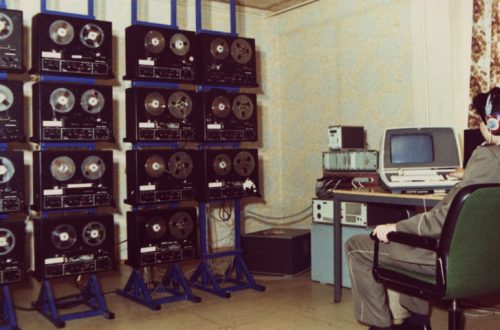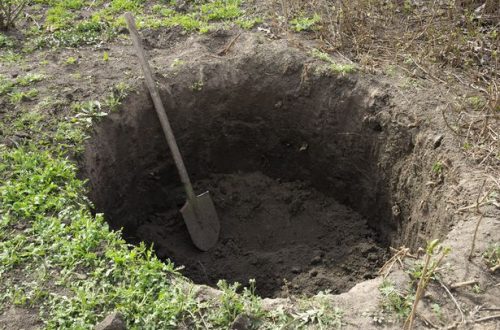I’ve been having a discussion with “Hangbitch” about abortion rights. We thought we’d do a joint post, here, to kick the discussion off:
I find a consistent and defensible position on the abortion issue extremely difficult to find. Theoretically at least, I fall somewhere between an absolute ban and post-natal infanticide. Let me explain why I find this so difficult, and how I have tried to reach a conclusion on the matter.
I think the key to the question is deciding what it is that makes human (as opposed to other sentient) life ‘sacred’.
If the essence of the distinction is merely capacity to feel pain, then that’s the important factor. You have to decide why human life counts but, say, a chicken’s doesn’t. But, assuming you’re simply “humanocentric”, that’s not a real problem. All you need to do is to decide when awareness of pain starts, and make your best guess.
I think that the important factor is something more nebulous, like “personhood”, that is, having a coherent set of desires about what you’d like to do with your own life, rather than simply responding to your immediate desires, or satisfying your needs. That’s something we do that other animals don’t. It is what we mean when we say that we value our lives, and the lives of others.
And it is not only what makes us special: it is what makes us dread dying young, and what makes us distinguish between the tragedy of a man in his 30s with a young family who dies, and a grandfather who passes away in his sleep at the age of 85. We say of the latter death, “he had a good innings”: his life’s work accomplished, and so on. All animals have an interest in avoiding pain, and strives to stay alive. But there’s something uniquely human about our ability to value our own lives, and those of others.
If that’s the issue, then we’re able to decide when we can make the decision to terminate life. It doesn’t on its own, allow us to determine when that choice is right to make. We can do it on the basis of whether a life is a person: in which case taking it is a particularly grave step. If we don’t think a life is a person – because somebody has suffered extreme brain damage, or because they are a foetus or a very young child – we could, I think, regard it as, at least somewhat, less morally significant than the killing of a foetus or a person in a coma.
Or we might not. We might say, for example that, “potential” matters: a person with extreme brain damage will never recover, but a foetus will, in the fullness of time, become a person.
Even with these principles, we have to draw the line. We might do it at 18 weeks or 24, or prior to birth, or using “viability” as the key.
Or alternatively, we can apply some sort of interests based reasoning the the calculation. We might say that a child who will be born and live in pain for a short time might rationally choose not to life. That a choice can’t be made – because no “living will” was made while the individual was healthy – doesn’t mean that the best choice is to do nothing. After all, doctors make decisions in cases of euthenasia like this all the time. That sort of reasoning, drawn from Professor Dworkin’s Life’s Dominion was used in the Tony Bland case. Rights/Interests based reasoning like this is the sort of thing that courts do well
We might even apply some form of utilitarian reasoning: assigning a value to the damage done to a woman forced to give birth and weighing it against the life of a foetus. This is the sort of line drawing exercise is how we decide most difficult moral issues: and we do it in Parliament, which at the very least gives democratic legitimacy to the issue.
There’s also a very odd argument of Judith Jarvis Thompson’s premised on the analogy of a violinist who wakes up to find that he has been kidnapped and attached, by “kidney plugs” to a man. Can he remove them? Of course he can. But it is a stupid example: not least because people aren’t kidnapped and plugged into the renal system of strangers. It is an analogy which is constructed to produce a particular answer.
What makes it difficult for me, as a father of a small child, is that I see a link between the ultrasound scan taken of my little boy when he was 24 weeks old, and he was sucking his thumb, just as he does now.
This doesn’t lead me to a rational conclusion, which I can support logically: but it does produce a strong emotional response.
Hangbitch responds:
And fair points all, but the thing that strikes me most about your thoughts is that you don’t seem to be thinking of women – or, at least, your priority is with the unborn child. You’re a parent – fair enough. That’s the essential issue of the debate, though – when it comes down to it, pro-choicers are saying that a baby’s life is not quite as important as a woman’s. Pro-lifers, meanwhile, are saying that a woman’s life is not quite as important as a baby’s. And there it is. You fight the baby’s corner: I’d like to fight the women’s.
These feel like dangerous times to me. Today’s politics are not liberal, and it’s difficult to know where to go. Nearly 40 years have passed since the Abortion Act came into being and it feels like we’re back at the start. Clinics that offer abortions have been banned this week from Harley Street. Campaigners in the US, particularly in places like South Dakota, are literally driving abortion from the books. I read on the Abortion Rights website this week that Nadine Dorries – the Tory MP whose Termination of Pregnancy Bill got an old-fashioned towelling from fellow MPs in October last year – has risen again and is reported to be ready to go with another Termination of Pregnancy Bill, which she will present to parliament in March.
Like her first bill, this one aims to reduce the time-limit for legal abortion from 24 weeks. Her first bill had a particularly patronising angle in the form of a compulsory ten-day cooling-off time for women who request an abortion – ten days presumably being the time it takes a mature woman who has made up her mind to either find God, or see reason as it is seen by the likes of Nadine. The so-called Left (I’m thinking particularly of Respect here) has aligned itself with a religious group and has not been strong in its public defence of the right to legal abortion. I was a member of the SWP, but am no longer, largely because of the abortion issue. I was told to shut up already when I raised it, or to focus on the Iraq War and to ‘leave other issues at the door.’ Women like me have very little political representation at the moment. I think we have a right to political representation, and to live life.
The question of a time-limit for abortions is an easy target, although a small one. Only a small number of abortions are carried out late in term, and they tend to be for good, and very human, reasons.
One is that a woman hasn’t realised she is pregnant (an issue for teenagers, apparently, who don’t know, and perhaps don’t want to know, the signs), or has had several false-negative pregnancies tests. Another is that some women misjudge the length of their pregnancy – it’s not unheard-of for women to go symptom-free for a couple of months. Another is that younger women especially can be afraid to face up to the fact that they are pregnant – ie, they’re so worried about the response they’re going to get from family, etc, that they just deny it until such time that they can’t. It seems possible that a baby at 24 weeks can feel: the point I’m trying to make is that a woman also feels, and that feeling – the horror that is suspecting that you’re pregnant when you desperately don’t want to be – ain’t too good. It can make you feel suicidal. I doubt that too many women have abortions at 24 weeks on a whim.
You have to really want it to go ahead with it at that point, but that’s the point – that’s how badly women want to be rid of the nightmare that is an unwanted pregnancy. Doesn’t all this make abortion and late-term abortion valid? Even those women who waste – if you want to call it that – vital months praying that the whole thing will just go away deserve real sympathy in my view. The fear that paralyses them is as human as any baby and deserves at least as much respect. The fear is of a life that no longer belongs to you – economic hardship, isolation and possibly a permanent interruption to education. But it’s more than that – the fear also has something to do with the feeling that you just don’t want this and that you just can’t have a baby right now. I think this is a fear of a loss of freedom at a time when you are simply not ready to lose that freedom. That’s why talk of stricter abortion criteria is so frightening. It strikes you as a sentence without trial. It says that your freedom will end soon – that you will be dominated. That feeling of being dominated by others is a feeling that I can barely stand.
This will sound offensive and patronising, but I’ll say it anyway – I just don’t know if men understand that feeling, and that fear of the end of freedom that strikes when you think you are pregnant and don’t want to be. Well, they wouldn’t, but you know what I mean. Men often sympathise, but they just don’t know the real impact of that ‘I’m not ready’ feeling. If the time is not right for a pregnancy, the thought that you might be is a torture. This is not to imply that men shouldn’t have a say: I’m just not sure that they should have the final say. I’m married, and my partner would have a say in things if I did get pregnant. We both understand, though, that the final decision would be mine.
Over at www.hangbitch.com, I’ve asked Nadine Dorries to come back to me with her reasons for her second pass at abortion rights. She’s been very quiet thus far, so I’ll send her a reminder soon – she has made me angry. And a pro-choice rally will be held in London on 3 March outside ULU in Malet Street. And then maybe we can get down to it.


